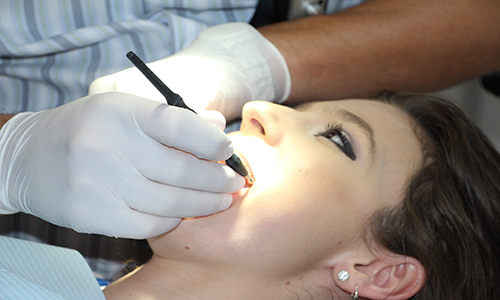Introduction
The human mind has long fascinated scientists, philosophers and spiritual leaders. One facet of its power that has long intrigued these professionals is its influence on health; specifically the connection between positive thinking and physical well-being; the findings have been quite convincing. In this article we’ll explore how cultivating a positive mindset can lead to happier and healthier living lives.
Understanding Positive Thinking.
Positive thinking goes beyond simply having an optimistic view or seeing things as half full; it is a mindset characterized by optimism and constructive responses to life’s challenges and opportunities. Positive thinkers tend to focus on solutions rather than dwelling on problems, believing they have what it takes to overcome obstacles and stay positive when facing difficulties.
Positive thinking does not involve denying difficulties exist or pretending everything is perfect; rather, it involves acknowledging our challenges while remaining confident that we can navigate them successfully. Adopting this mindset can have significant effects on various aspects of our lives including physical health.
Mind-Body Connection
Our minds and bodies are deeply intertwined, which lies at the core of positive thinking’s impact on health. Studies have revealed how our thoughts and emotions can directly influence physical well-being.
Stress Reduction: mes Positive thinking can reduce stress, which has been linked to heart disease, high blood pressure and impaired immunity. By keeping an optimistic viewpoint we produce less cortisol-releasing stress hormones which contributes to a more relaxed and balanced state.
Enhance Immune Function:
A positive mindset has been linked with enhanced immune system function. According to researchers, people who maintain an optimistic attitude tend to be less susceptible to infections and recover quicker when they do become ill.
Pain Management:
Positive thinking has an enormous effect on our perception of pain. Studies have revealed that patients who keep a positive outlook tend to experience less discomfort during recovery and require fewer pain medications.
Longevity:
Recent studies suggest that positive thinkers may live longer due to reduced stress levels, better immune function and overall better lifestyle practices that often come hand-in-hand with adopting an optimistic viewpoint.
Positive Thinking and Health Outcomes
Positive thinking’s impact on health outcomes extends beyond a few areas; rather, its influence permeates multiple aspects of our wellbeing.
Cardiovascular Health:
Research suggests that optimistic people tend to have lower risks of heart disease. They typically exhibit lower blood pressure, healthier cholesterol levels and a decreased likelihood of atherosclerosis development. Positive thinking may even improve heart rate variability – another indicator of cardiovascular wellness.
Better Coping With Illness:
A positive outlook can greatly enhance the quality of life for those dealing with health challenges, like cancer. Positive outlook patients tend to experience less severe side effects from treatment and have an improved overall prognosis.
Mental Health:
Positive thinking has an essential link with mental wellbeing. It can lower depression and anxiety risks while increasing overall psychological well-being, creating resilient individuals capable of dealing with life’s obstacles more successfully.
Healthy Lifestyle Choices: Positive thinkers tend to make healthier lifestyle decisions. They’re more inclined to engage in regular physical exercise, consume balanced meals and avoid harmful habits like smoking or excessive alcohol consumption.
Positive Thinking Can Hasten Recovery: Studies have revealed that having a positive outlook can expedite healing after surgery or injury. Studies have also demonstrated that patients who adopt positive attitudes often recover faster, needing shorter hospital stays overall.
Practical Strategies for Fostering Positive Thinking
Cultivating a positive mindset can be invaluable when seeking to improve health and overall well-being. Here are some practical strategies for building and maintaining one:
Practice Gratitude:
Take time each day to reflect on all that you are grateful for in your life. Affirmations can help change the focus from what’s lacking to all you already possess and appreciate.
Surround Yourself with Positivity: Spend time with supportive, uplifting people who will uphold and nurture your optimism, avoiding toxic relationships that sap energy and drain positivity from you.
Challenge Negative Thoughts:
When negative thoughts surface, challenge them. Determine if your assumptions are grounded in reality or speculation and replace negative ones with more realistic and constructive thoughts.
Visualization: Succeed in reaching your goals more confidently and gain motivation by visualizing yourself accomplishing them and overcoming any challenges that may be in the way. Doing this can boost both confidence and motivation!
Mindfulness and Meditation:
Integrate mindfulness and meditation practices into your everyday life to remain present and reduce stress. These techniques can help manage emotions effectively while keeping a positive perspective.
Prioritize Activities That Bring Joy And Relaxation For Self-Care:
Finding activities that bring pleasure and relaxation is crucial to maintaining a positive outlook and mindset.
Realistic Goal Setting: Cultivate A Sense Of Purpose And Accomplishment: Create goals that give a sense of purpose and accomplishment while celebrating all victories, no matter how small. Celebrate Your Accomplishments No Matter The Size: Embark on Setting Realistic Goals Now: (You may want to set more than one realistic goal.
Conclusion
Positive thinking’s impact on health is more than mere wishful thinking or placebo effect – it is scientifically supported phenomenon which shows the correlation between our thoughts and physical well-being. A positive mindset can reduce stress levels, boost immunity, improve cardiovascular health and enhance our capacity for dealing with illness more effectively.
Cultivating a positive mindset is a lifelong journey that takes effort and practice; but its rewards make it worth your while. Positive thinking can lead to happier, healthier lives with greater resilience against life’s obstacles; so take steps today and use its power for your health and wellbeing!





